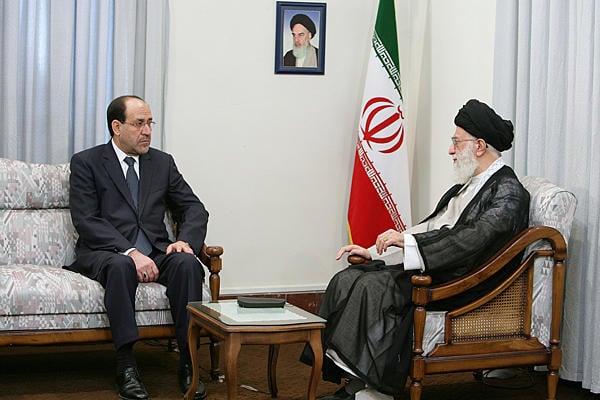
The U.S. should not help Shia Islamists to the detriment of Sunni Islamists. The U.S. should support toleration and moderation in Iraq. Their current policies don’t do this.
Israeli Prime Minister Benjamin Netanyahu recently stated that it would be a serious mistake to ease pressure on Iran in the nuclear talks in exchange for help against Al Qaeda operatives in Iraq, JerusalemOnline reported. Israel’s Prime Minister is correct in stating this, because to strengthen Iran is to help Shia Islamists against Sunni Islamists. It does not encourage toleration and moderation within Iraq and the greater Middle East.
For this reason, Obama’s precondition for military assistance to Iraq should not have been the democratization of the Iraqi government, but rather that Iraq will not be part of the Iran axis. Maliki has shown a willingness to cooperate with the U.S. against Iran’s wishes, even though he is Shia. Now is his time of great need. He didn’t turn first to Iran. He wanted the U.S. to help him and this says something.
Instead of helping him overthrow al Qaeda, the U.S. gave him the cold shoulder, even though the alternative to Maliki is al Qaeda, not a democratic broad coalition as Obama appears to wish. In response, Iran stated that they will provide him with all of his needs, a move which further pushes him into the Iran axis.
Such American threats won’t force Maliki to resign, as Iran will ensure that he will stay in power. All these threats do is undermine American interests, for it further strengthens Iran’s grip over Iraq. Furthermore, with the influx of Shia fighters from Iran, the struggle will become one between Shia and Sunni Islamists, not a struggle between moderates and extremists. Obama’s Iraq policy therefore undermines the chances for moderation to succeed in this difficult situation.
Aside from Iran’s grip getting strengthened in Iraq, the willingness of the Islamic Republic to fight against al Qaeda could lead to Obama lessening the pressure on Iran in relation to the nuclear talks and this is a major threat to world peace. Iran’s nuclear program remains a significant problem for Middle Eastern stability, regardless whether Iran takes a stand against al Qaeda or not. Iran is opposed to al Qaeda because they are Sunni, not because they support moderation. If Shia Islamists were to replace Sunni Islamists, how would that exactly help the cause of world peace?
Like the Sunni Islamists, the Shia Islamists stone women to death for adultery, believe that homosexuals should be executed, and persecute minorities. Iran is especially notorious for its oppression of the Baha’i faith — a religion the Islamic republic does not believe has the right to exist merely because they believe in a prophet who came after Muhammed. While Baha’i holy sites are major tourist attractions in Israel due to their magical gardens, in Iran, they have been systematically destroyed by the regime.
Iran also exports terrorism all over the world. Iran backs terrorist organizations like Hamas, the Palestinian Islamic Jihad, Hezbollah, and the list goes on. Very much like the Sunni Islamists, they have no problem using non-conventional weapons that are in their possession and they also seek for Israel to be wiped off the map. The fact that they are Shia instead of Sunni does not make them better for world peace, women’s rights, gay rights, human rights, and regional stability.
Given these facts, the Obama administration should seriously consider revising their Iraq policy. They should be promoting moderation and tolerance in Iraq, not the success of Shia Islamists over Sunni Islamists. The U.S. government should remember that alliances with Islamists, regardless whether they are Shia or Sunni, are never long lasting. Just as the Afghani Taliban turned on the U.S. once the Soviet Union was dealt with, Iran would do the same once the Sunni threat is removed from Iraq.